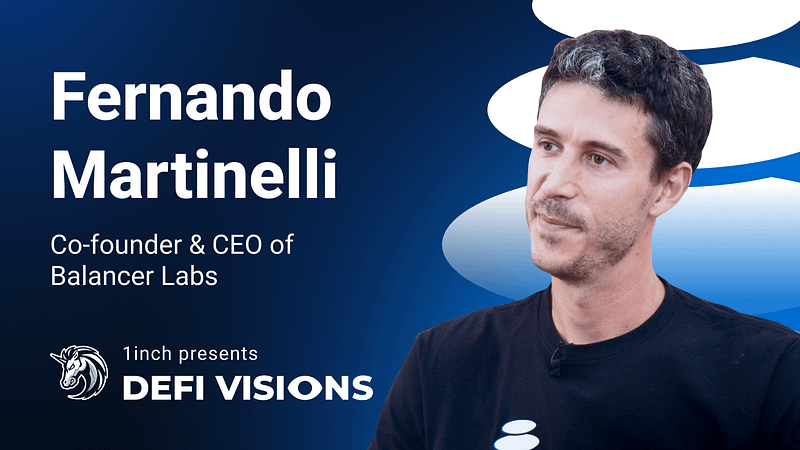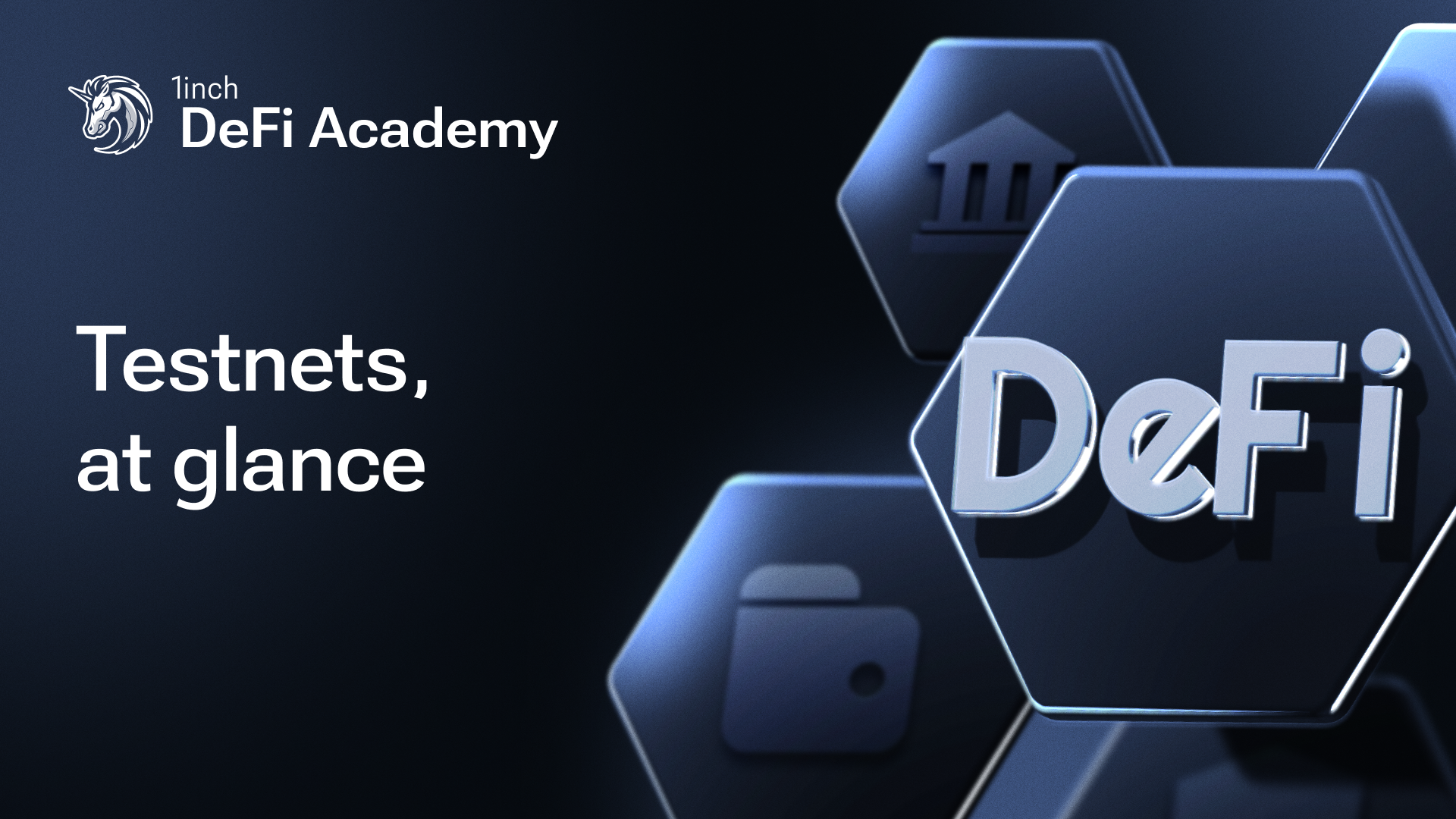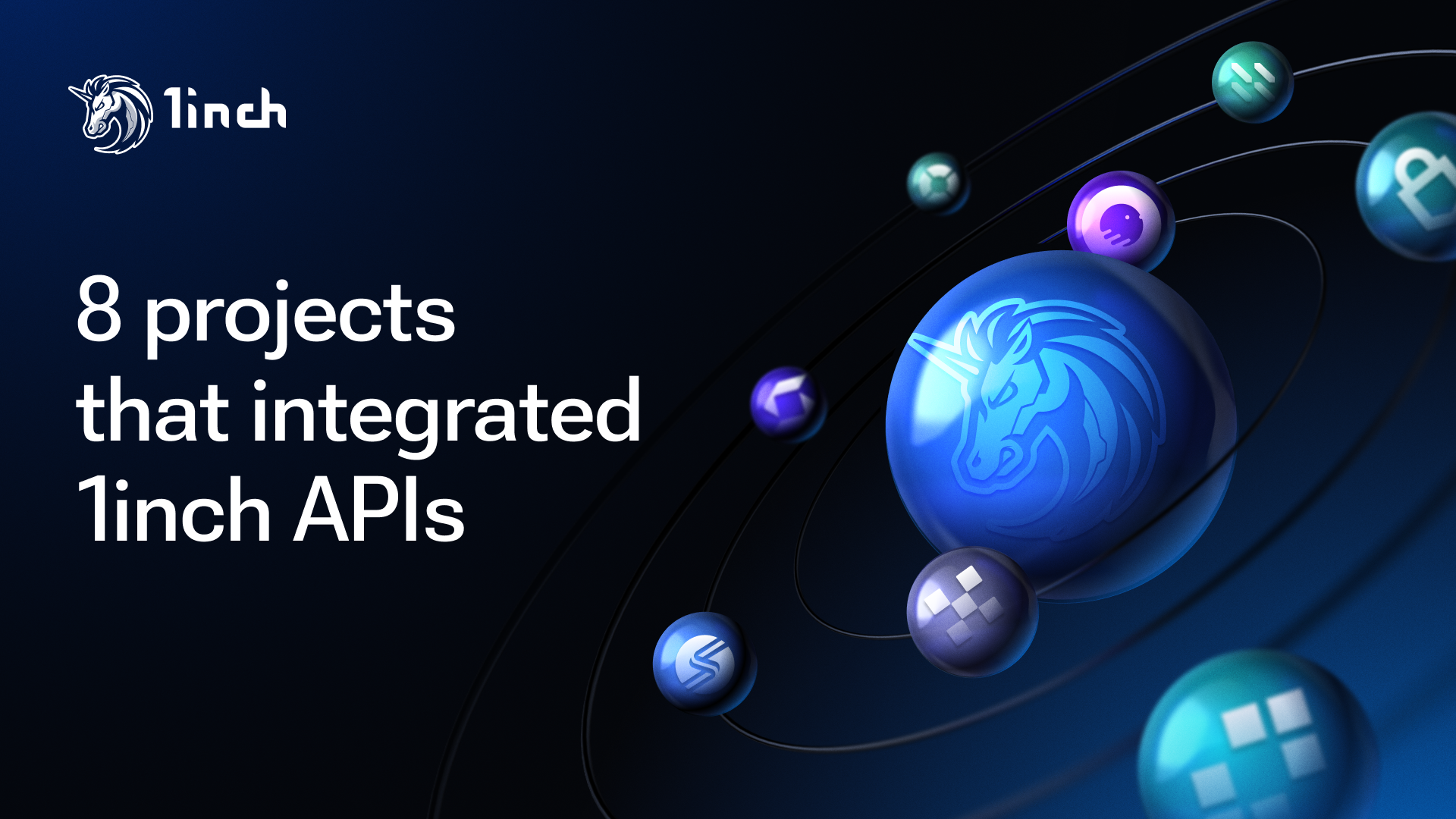DeFi Visions: Fernando Martinelli

Here comes a new installment of DeFi Visions, a series of video interviews in which 1inch talks to the most prominent projects and personalities in DeFi. This post shares key insights from a recent interview with Fernando Martinelli, co-founder and CEO at Balancer Labs.
Fernando Martinelli started Balancer Labs in 2020 together with co-founder Mike McDonald after spinning off as a separate company from an engineering and research firm. Since its launch, the trading platform has focused on providing liquidity to the markets and creating new automated portfolio management systems. Today, Balancer is a decentralized Ethereum-based exchange and one of the leading automated market makers and non-custodial portfolio managers.
Attracted by “the groundbreaking and revolutionary fact that no one can get into the way you send value to someone else,” Fernando got his first exposure to crypto in 2012 and “never left the space after that.”
Fernando says he considers himself to be an Ethereum maximalist and believes more in ETH than in BTC, which brought him into DeFi space.
The conversation takes place a short time after Balancer’s deployment on Optimism, and there are some more solutions that the platform is going to expand to. “We need to scale,” says Fernando. “Any time the market price deviates from what the pool has offered, there have to be on-chain transactions to correct that. And we are working with the Gnosis Chain team to deploy there soon. We are Ethereum-first, but we are also open to other Layer 1s and Layer 2s, so we discuss different scalability solutions.”
Staying on the subject of scalability, Fernando mentions one of the misconceptions of the merge that “Ethereum will magically be more scalable and will have more capacity and block space.” He says it is not that simple, and suggests considering other options for scalability.
“I think both Optimistic Rollups and ZK-Rollups can be interesting solutions to the same problem as they offer different trade-offs, and each rollup can be used for different niches,” he explains.
Fernando’s vision of L1 future functionality is “to be a settlement layer, where really important disputes are made.” Meanwhile, he adds that “all the other things, like storage, would rather be put in a cheaper place.”
At the same time, Fernando says, Ethereum is on the right path of keeping decentralized, keeping very neutral and being a base for not only finance but lots of innovative apps.
While the crypto market is going through a bearish cycle, Fernando shares a positive perspective on its influence on DeFi space. “The collapse of Terra/Luna and CeFi companies, like Celsius and others, showed everyone that DeFi works,” he observes. “We are in a bear market. But the silver lining is in the fact that DeFi apps worked very smoothly despite the crash aftermath. It can serve as an inspiration to other protocols when deciding if to work in a centralized or decentralized system. And I hope things will go to the DeFi side.”
Fernando says he finds the lesson learned from the downturn is essential for the market participants: “All the founders, all the protocol creators, everyone involved in Web3, DeFi and Ethereum or other blockchain apps, have a responsibility to plan and to model the design of their systems not only for up-markets but also for down-markets.”
“You cannot get rich quick. A lot of years are required to prove the design of a financial system,” he adds. “And if something just works on the way up, it’s no good. So, design your system for all market conditions.”
Wrapping up the conversation with his thoughts on DAOs’ mission, Fernando says he is confident in their efficiency as they “are translations from what we need in the real world to be represented on a chain.”
“There are lots of advantages as well as challenges, like voting mechanisms. But I think we’ll see a lot of innovation and improvements in the next year,” he concludes.
Watch the full interview with Fernando Martinelli on The 1inch Network’s YouTube channel.




























